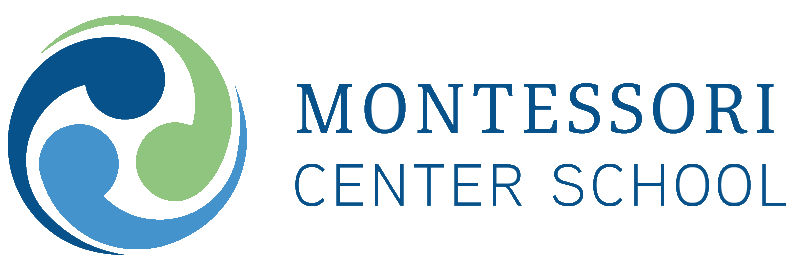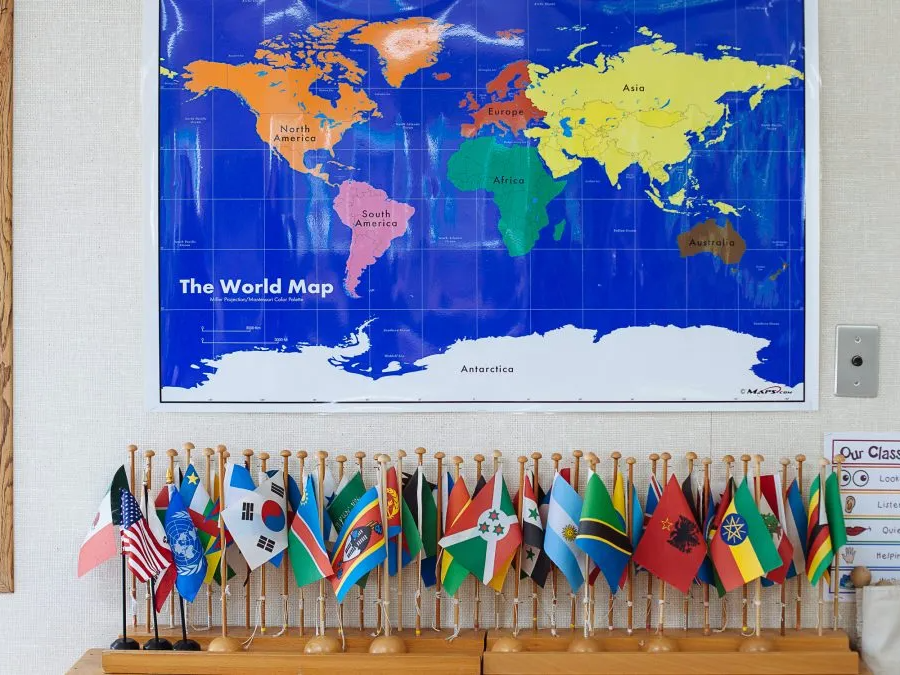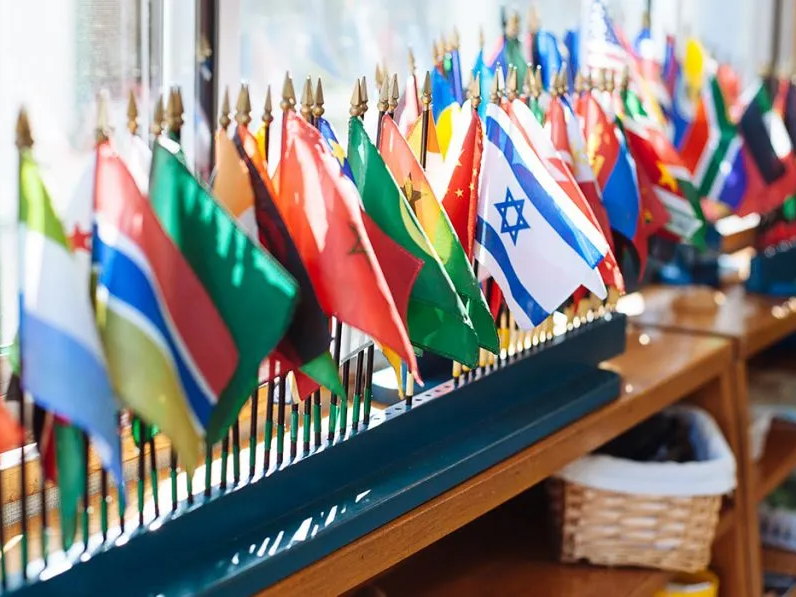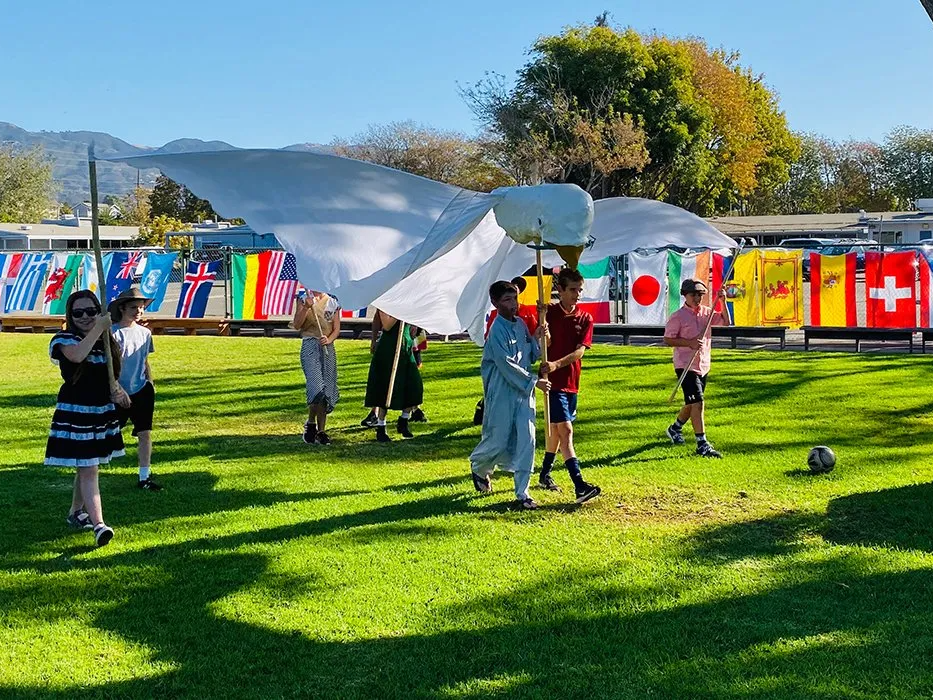Peace Education
“An education capable of saving humanity is no small undertaking; it involves the spiritual development of man, the enhancement of his value as an individual, and the preparation of young people to understand the times in which they live.”
-Dr. Maria Montessori
Dr. Maria Montessori and Peace Education
Dr. Maria Montessori worked tirelessly for global peace and received three nominations for a Nobel Peace Prize. Montessori strongly believed that the path to peace lies in the education we give to our children.
Dr. Montessori met Mahatma Gandhi in London in 1931. While living in India during World War II, Montessori and Gandhi corresponded through letters. “Establishing lasting peace is the work of education,” Montessori wrote to Gandhi. Through Gandhi’s interactions with Montessori schools he understood the wisdom of the Montessori method. Gandhi said, The “more I came in touch” with these schools, I began to understand that the foundation was good and splendid,” that “children could be taught through the laws of nature—nature, consistent with human dignity, not nature that governs the beast.”
A commitment to basic human rights such as freedom, dignity, safety, equitable treatment, and a standard of living adequate for health and well-being drive the Montessori commitment to education for peace and social justice. By creating respectful, inclusive classrooms, celebrating diversity in all its forms, crossing cultural boundaries, and modeling engaged citizenry, Montessori educators nurture students who will transform the world and make it a better place for their generation and the generations that follow.
Dr. Montessori believed each generation of children brings renewed hope for a more peaceful world. But so often in our practice we make the mistake of isolating peace as a separate curricular area. As children move from respecting their physical space to respectful collaboration, from projecting their own desires for peace and social justice to leading that change, they will come to understand that conflict is an opportunity for growth and understand their own potential for leadership. This is the essence of Montessori, and can be found in the design of the materials and the prepared environment. You will find elements of peace through all levels, materials, and subjects.
-American Montessori Society
Helpful Resources for Parents, Children and Teachers
We will continue to update this page regularly with new content.
Articles:
10 tips for teaching and talking to kids about race
Talking to Children About Racial Bias
How to Talk Honestly with Children about Racism
The Impact of Racism on Child and Adolescent Health
Websites:
American Academy of Pediatrics
Apps/Podcasts:
Shoonya: Designed by a fellow Montessori parent, this interactive, edutainment app allows children to learn about languages and cultures from around the world
Organizations to Follow
Black Lives Matter. Join the Movement fighting for freedom, liberation, and justice. Resources, petitions, and informational guides available.
Family Equality provides resources, activities, and advocacy work for LGBTQIA+ families.
PBS shares information for parents and teachers around educating children about Black History Month.
The Trevor Project is a national organization providing crisis intervention and suicide prevention services to LGBTQ youth.
The Peace Alliance empowers civic engagement toward a culture of peace. Their network includes volunteer grassroots teams nationwide.
The Conscious Kid provides parenting and educational resources through a critical race lens.
Youth Peace & Social Justice Organizations
DoSomething.org mobilizes young people worldwide to sign up for a volunteer, social change, or civic action campaign that has real-world impact.
Great Kindness Challenge is an annual event based on the belief that everyone has the power to change the world. The event will be held in January 2021.
Kids for Peace focuses on youth leadership, community service, global friendships, and thoughtful acts of kindness.
Book Recommendations:
“Books for Peace: An Annotated Bibliography,” from AMS’s Montessori Life magazine, Spring 2016.
“Power Picture Books: Tools for Teaching Peace,” from Montessori Life, Winter 2008 – 2009.
“Children’s Books That Tackle Race and Ethnicity,” by Maria Russo, from the New York Times, September 23, 2016.
“These Books Can Help You Explain Racism and Protest to Your Kids.”
The Every Mom blog shares 50 children’s books that celebrate diversity.
A Feminist Book List for boys and girls, compiled by the New York Times.
“The child is both a hope and a promise for mankind.”
-Dr. Maria Montessori
Programs
Montessori Center School admits students of any race, color, religion, national and ethnic origin, gender identity, and sexual orientation to all rights, privileges, programs and activities general recorded or made available to students at the School. It does not discriminate on the basis of race, color, religion, national and ethnic origin, gender identity or sexual orientation in the administration of its educational programs, admission and tuition assistance policies, and athletic or other school-administered programs. Non-Profit Education Organization, License No. 426205239





